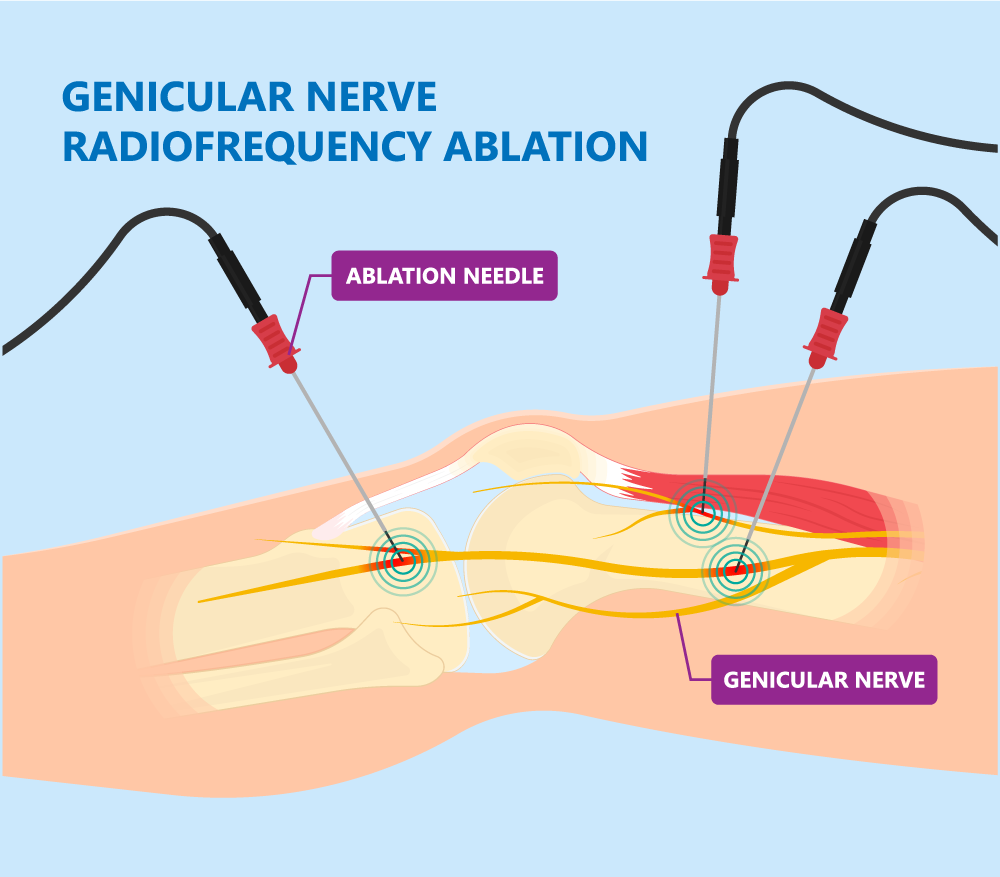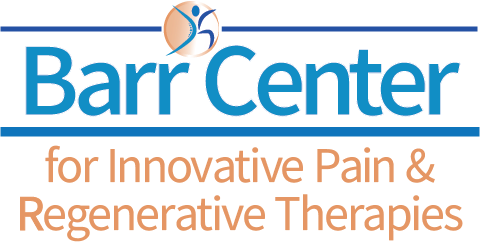The knee is the largest weight-bearing joint of the body. As a result, it is exposed to a lot of wear and tear throughout our lives. Normal wear and tear associated with aging as well as the effects of injuries and failed surgeries can eventually cause significant chronic knee pain.
Anyone with chronic knee pain knows how big of an impact chronic knee pain can have on work, exercise, and daily activities. For people with advanced knee arthritis, pain often persists even when sitting or at rest.
As osteoarthritis progresses in the knee joint, pain, swelling, instability, and joint stiffness can become unbearable. Topical medications, injections, and lifestyle changes, such as weight loss, may help initially but, as the arthritis progresses, the pain returns. When chronic knee pain stops responding to traditional treatments, many patients elect to undergo a knee replacement.
For other people, however, surgery is not an option due to pre-existing health issues or other health concerns. For these patients, it might be best to explore newer and more advanced, non-surgical treatment options, such as radiofrequency nerve ablation.
At Barr Center, we specialize in diagnosing and treating chronic knee pain using cutting edge techniques and procedures, including diagnostic genicular nerve blocks and radiofrequency ablation.
What Is a Genicular Nerve Block?
 The word “genicular” refers to the arteries and nerves that supply sensation to the knee. For people with knee osteoarthritis, the pain signals delivered by these nerves can become unbearable.
The word “genicular” refers to the arteries and nerves that supply sensation to the knee. For people with knee osteoarthritis, the pain signals delivered by these nerves can become unbearable.
A genicular nerve block (GNB) temporarily blocks the painful nerve signals in the knee. If you experience effective pain relief following a nerve block, your provider may recommend genicular nerve ablation (GNA) to treat your knee pain.
During the GNB procedure, your doctor will target the superior medial, the superior lateral and the interior medial nerves of your knee with a needle and inject a mixture of two numbing agents- Lidocaine and Marcaine. This anesthesia numbs the nerves and prevents them from sending pain signals to the brain. This way you may still have the painful condition, such as arthritis, but you will not feel the pain.
Is Genicular Nerve Block Painful?
Genicular nerve block (GNB) procedures require the use of a needle. For many people, the injection causes only mild discomfort.
Are There Risks Associated with Genicular Nerve Block?
GNB is a non-surgical procedure that carries few risks. However, some cases of adverse side effects have been reported. Allergies to x-ray contrast and the local anesthetics are the most common risks. Local bleeding at the injection sites can also occur as well as a low risk of infection, pain, redness or swelling at the injection site. On a rare occasion , nausea and dizziness can occur.
What to Expect Following A Genicular Nerve Block
Following your GNB, you should pay close attention to your pain levels and complete the post block pain diary over the 8 hours following the GNB. Pain relief should occur almost immediately after the injections and should last for up to 8 hours. Patients who experience significant pain relief from the injections are often good candidates for genicular nerve ablation (GNA), which cauterizes the nerves in the knee. GNA like GNB is performed under x-ray guidance using a needle and does not require surgery. Genicular nerve ablation can provide pain relief for up to 18 months.
Are you experiencing chronic knee pain that hasn’t responded to treatment? A genicular nerve block can help diagnose the source of your pain.




